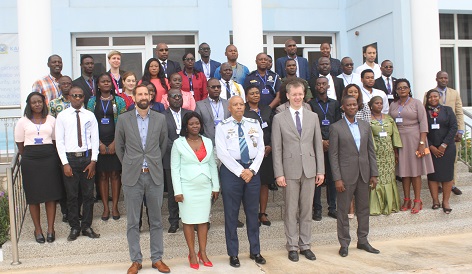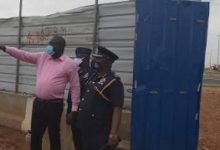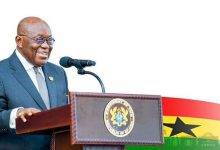
A three-week human rights course aimed at enhancing the capacities of actors involved in multi-dimensional peacekeeping operations is underway in Accra.
It is being organised by the Kofi Annan International Peacekeeping and Training Centre (KAIPTC) with support from the Government of Germany.
Participants are drawn from African countries including Zambia, Democratic Republic of Congo, Benin, Nigeria, Ghana, Somalia, Senegal, Burkina Faso and South Sudan.
Addressing participants at the opening of the training, Commandant of the KAIPTC, Air Vice Marshal (AVM) Griffiths Santrofi Evans said the course was specially put together and reviewed by the United Nations Office of the High Commissioner for Human Rights (UNOHCHR).
It further aimed at equipping human rights officers with the necessary knowledge, skills and technical competencies needed to support human rights during peace operations in Africa.
He stated that security on the continent required pragmatic steps, given the reality of human rights abuses when conflicts erupt, hence the need for trained human rights practitioners could not be overemphasised.
The course, according to him, would equip participants with information on the legal framework for human rights protection, mandates, documenting and reporting on human rights violations and best strategies for protecting the vulnerable.
AVM Griffiths urged participants to be “relentless implementers and advocates of human rights wherever you find yourselves”.
The Deputy German Ambassador to Ghana, Mr Hans-Helger Sander on his part mentioned that, it was unfortunate violations of human rights were happening everyday in different forms, saying these violations were as a result of the collapse of public infrastructure, functioning institutions and the rule of law.
He explained that the prevention and addressing of such human right violations in conflicts and post conflict situations were preconditions for sustainable peace.
Mr Sander blamed national authorities for losing the capacity, resources and expertise, necessary to ensure human rights protection during and after conflicts.
“It is in this context that human rights experts and in particular, human rights observers are called upon to help fill this human rights vacuum,” he added.







